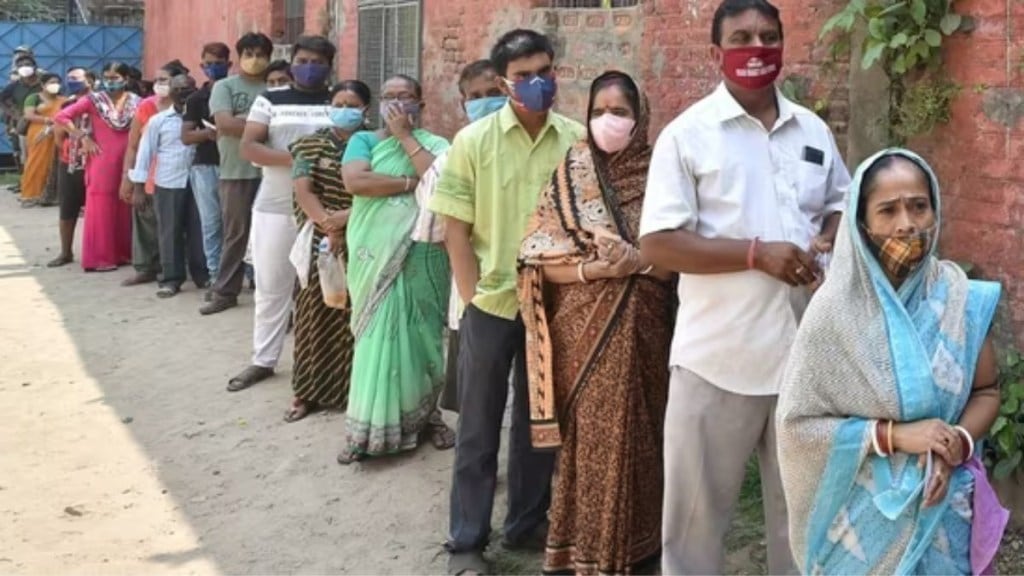The Election Commission of India on Monday i.e. October 9 announced the dates for Assembly Elections of five states, which is being touted as the ‘semi-final’ of the political war, ahead of the Lok Sabha Elections 2024. Rajasthan, Chhattisgarh, Mizoram and Madhya Pradesh will cast their ballot between November 7 and November 30. The results of the polls will be announced on December 3, 2023.
As per the set protocol, as soon as the poll dates are announced, the Model Code of Conduct comes into force.
The Model Code of Conduct is a set of strict rules that evolved over a period of the past six decades. It has been laid down by the Election Commission of India.
According to the ECI, the model code of conduct was first observed during the 1960 polls.
The Model Code of Conduct consists of a set of guidelines that the political parties are expected to abide by. Their campaigners and the candidates are also required to abide by these guidelines. This code of conduct is brought into effect by the Election Commission to ensure free and fair elections.
According to the ECI, the Model Code of Conduct is implemented after the election dates are announced and remains in place till the election process ends. It is to respect political parties and candidates. The provisions of MCC are applicable to any content posted by candidates and political parties on the internet including social media websites.
It is to be noted that in 2019 ECI had decided to keep all social media posts by every political party and its leaders under vigilance to detect any violation of the MCC.
The MCC is broadly classified into three parts. The guidelines are drawn on general conduct, meetings and processions.
Here are some key highlights of the guidelines:
MCC Guidelines for General Conduct
- No political party or candidate should engage in activities that could exacerbate existing divisions or foster mutual hatred, or create tension among different castes, communities, religions, or linguistic groups.
- When criticizing other political parties, such criticism should be limited to their policies, programs, past performance, and official actions. Parties and candidates must refrain from commenting on the personal lives of individuals.
- Avoid making unverified allegations or distorting information when criticizing other parties or their members.
- Do not appeal to caste or communal sentiments to secure votes. Religious places such as mosques, churches, temples, and others should not be used for election propaganda.
- All political parties and candidates must abstain from activities considered “corrupt practices” and offenses under election laws. These include bribing voters, intimidating them, impersonating voters, campaigning within 100 meters of polling stations, conducting public meetings within 48 hours of polling, and transporting voters to and from polling stations.
- No political party or candidate should allow their supporters to use an individual’s property, such as land, buildings, or walls, for purposes like erecting flagpoles, displaying banners, posting notices, or writing slogans without obtaining proper permission.
- Political parties and candidates should ensure that their supporters do not disrupt or interfere with meetings and processions organized by other parties.
MCC Guidelines for Meetings
- Parties or candidates should inform local police authorities about the venue and timing of any planned meeting well in advance.
- Parties or candidates should confirm in advance if there are any restrictive or prohibitory orders in effect at the proposed meeting location and strictly adhere to them.
- If permission or a license is required for the use of loudspeakers or any other equipment for a meeting, parties or candidates should apply to the relevant authority well before the event.
MCC Guidelines for Processions
- Organizers of processions should determine the starting time, starting location, route, and the ending time and place in advance.
- Advance notice of the procession’s program should be given to local police authorities.
- Organizers should check whether any restrictive orders are in place for the areas the procession will pass through and comply with these restrictions unless exempted by the competent authority.
- If multiple political parties or candidates plan to hold processions along the same route or at similar times, they should establish communication in advance and decide on measures to prevent clashes or traffic disruptions.
- Parties or candidates should exercise maximum control over procession participants to prevent the misuse of any items, particularly during moments of excitement.
- The act of carrying effigies representing members of other political parties or their leaders, publicly burning such effigies, or engaging in similar forms of demonstration should not be endorsed by any political party or candidate.
The ECI issues a show-cause notice to the violators of these guidelines as it does not have the judicial ability to penalise them. In some cases, the ECI bars the violators from the poll campaign.

